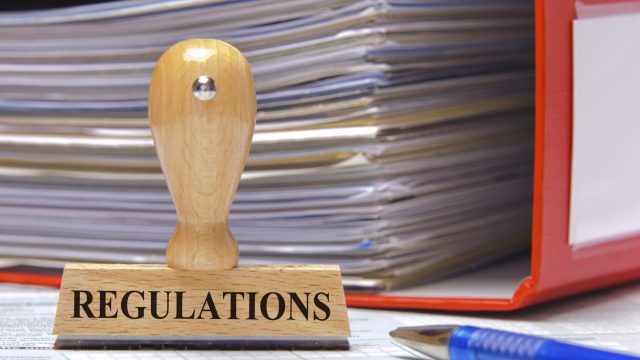What's So Bad About Considering The Economic Impact Of Regulations?

regulations
North Dakota’s mostly Republican leadership often gets accused of being too cozy with the industries it regulates. Especially the energy industry, specifically oil and coal development.
I’ve always felt that the genesis for those accusations lays in a fundamental disagreement over how governments should regulate. I think some, mostly on the environmental lest, want an acrimonious relationship between the state and industry. They want the state out trolling for “gotcha” moments. On the other hand, I think the state’s approach to energy regulation – at least over the last several years – has been more pragmatic. They’d rather work with the industry to allow the industry to achieve their goals while also protecting the state’s interests (clean land, water, air, etc).
As a shining example of this divide, consider this letter to the editor in the Fargo Forum written by one Bernie Parkhurst of Mandan accusing David Glatt, the head of North Dakota’s Department of Health, of being a “shill” for the coal industry.
[mks_pullquote align=”right” width=”300″ size=”24″ bg_color=”#ffffff” txt_color=”#000000″]This is where prudent and conscientious environmentalism ends, and environmental radicalism begins.[/mks_pullquote]
Mr. Glatt’s sin, in Parkhurst’s eyes? He’s concerned about the economic impact of the Clean Power Plan. “I went to the North Dakota Health Department website and read Glatt’s job description,” writes Mr. Parkhurst. “Nowhere is it listed that one of his responsibilities is to shill for the coal industry. It also does not indicate that he is in any way supposed to portray himself as an expert in regard to our state economy.”
But why shouldn’t regulators like Glatt consider the economic impact of the regulations they’re tasked with implementing? If we are to set out to solve a problem (to the extent that emissions are actually a problem in North Dakota, which I don’t think they are), shouldn’t you consider the cost of fixing that problem?
Sadly, Mr. Parkhurst’s attitude is all too common in certain political circles.
This is where prudent and conscientious environmentalism ends, and environmental radicalism begins. Nobody wants to see the land destroyed, or the air fouled, but neither do we want to saddle ourselves with regulations which will severely impact our quality of life.
Public Service Commissioner Randy Christmann has said that the potential cost of implementing the Clean Power Plan in North Dakota – the raft of regulations Mr. Glatt is currently working on – could add up to as much as $50 per month per citizen of our state. That’s an enormous impact, and it’s ludicrous to think it’s something which should be set aside.
And yet, that’s what some would have us do, accusing anyone opposed of being a “shill” for “big oil” or “big coal.”
If ignoring the potential impacts for energy development in the environment is irresponsible, then so is ignoring the potential impacts of government regulation. We need to protect the environment, yes, but we must also balance that with protecting our quality of life.
Glatt shouldn’t be pilloried for his concern about economic impacts. He should be commended. It is illustrative of a level of common sense and pragmatism which is often missing from government regulatory regimes.




